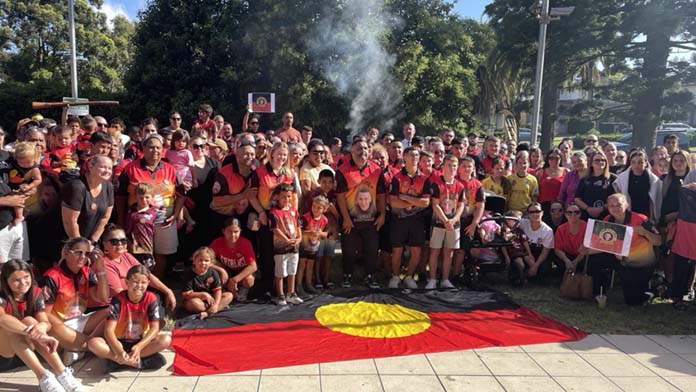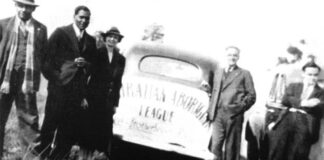Criminal charges are being considered against a police officer over the death of 16-year-old Jai Wright, after the NSW Coroner suspended the inquest into the death of the Dunghutti teenager after two days on 30 January.
This month marks two years since Jai was killed when the motorbike he was riding collided with an unmarked police car, causing head injuries that killed the 16-year-old.
Police had been in pursuit of the motorbike, believing it to be stolen, before they lost sight of it.
Counsel assisting the coroner, Peggy Dwyer, told the court that officers had then been ordered to stay in the area but to not pursue the stolen vehicle.
But in CCTV and in-car video footage played to the court, Sergeant Benedict Bryant could be seen swinging his unmarked police car in front of the trail bike, which then collided with it at high speed. Bryant had not activated his lights or siren.
Confusion over conflicting explanations about the teenager’s death from police added to the family’s grief, leading them to call for an independent investigation and an inquest into the details of Jai’s death.
In June 2023, after the internal police investigation found no evidence of wrongdoing, the Director of Public Prosecutions (DPP) announced that there would be no charges laid in relation to the death.
The Coroner has now asked the DPP to reconsider charges.
The head of Redfern police initially told Jai’s father, Lachlan Wright, that the unmarked police car had pulled in front of him, causing the bike to hit it.
But later on the same day an “independent investigator” sent by the police gave a different story, claiming that the police car was parked, and Jai had lost control of the bike and gone airborne into it.
The footage at the inquiry appears to cast doubt on claims the police car was stationary when it collided with the bike.
At Sydney’s Invasion Day rally on 26 January, Lachlan Wright spoke about his experience seeking justice for his son, drawing parallels with the case of T.J. Hickey, who died in 2004 after a police chase:
“We will eventually get justice. We won’t stop. We can’t afford to. We’ve seen it happen in the past with T.J. Hickey in Redfern, and the lies that we heard [from the police] about what happened with him.
“How can that still happen 18 years later with my son? Lying about not pursuing our kids. Coppers telling different stories depending on which coppers [are] coming in to talk to our family on the couple of days after he died.”
Winning justice
Jai’s parents have expressed hope at the prospect that criminal charges will be considered.
But since the Royal Commission into Aboriginal Deaths in Custody issued its final report in 1991, the legal system has failed Indigenous communities time and time again.
Since then there have been 559 Indigenous deaths in custody, yet only a handful of charges against police or prison guards have ever resulted, and even fewer convictions.
This year already there have been another two Indigenous people die in custody in NSW alone.
In the one solitary conviction, over the shocking case of Mr Ward, who was left to cook to death in a prison van in 2008, the two drivers were found guilty only of breaching work health and safety legislation and escaped with a fine.
Last year the first correctional officer to be charged with murder was cleared of all charges, after shooting Dwayne Johnstone in the back as he attempted to flee custody with his wrists and ankles chained.
Even this prosecution would have been unlikely without the Black Lives Matter marches in 2020, which took place just before the coronial inquiry that led to the charges.
When police officer Zachary Rolfe shot 19-year-old Warlpiri man Kumanjayi Walker dead in 2019 there was a national campaign by the right-wing media outlets supporting him. In his trial, text messages showing Rolfe and the NT’s police vicious racism were declared inadmissible and the killer was found not guilty.
There are rare moments when the perpetrators of police racism and abuse against Indigenous people are brought before a judge.
But racist, abusive, often murderous cops aren’t the exception, but are bred by the system that puts the badge on their chest and the gun in their holster.
The legal system works to reinforce Australia’s racist institutions; courts will sooner protect police than deliver any real justice.
We must answer Lachlan Wright’s call to “Keep Jai’s name in your heart and in your mind” and keep demanding justice.
But we must not for a moment think that a state prosecutor will bring an end to systemic racism or deaths in custody.
That requires a movement capable of fighting racism and holding the police to account.
By George Skinner






